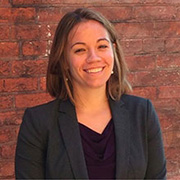A .gov website belongs to an official government organization in the United States.
A lock () or https:// means you've safely connected to the .gov website. Share sensitive information only on official, secure websites.

Air pollution, responsible for more deaths each year than HIV/AIDS and malaria combined, is a global public health crisis. Yet many scientific questions, including those directly relevant for public health and environmental policy, remain incompletely answered due to lack of simple air quality data access. Over the past five years, the OpenAQ Community has harmonized and made freely available more than half a billion existing air quality (PM2.5, PM10, O3, NO2, SO2, CO, and BC) ground monitoring data points from disparate government sources in 93 countries. To date, research communities around the world have used data accessed from the OpenAQ platform in more than 100 works cited on Google Scholar, from informing air quality forecast models to calibrating low-cost sensors.
This presentation will share the OpenAQ Community's story, highlight specific use cases of the open data platform by the atmospheric science community, and introduce open-source analysis tools built on top of the platform. The presentation will make a broader call for stronger open, harmonized environmental data ecosystems and infrastructure that enable more groups - from scientists to journalists to policymakers - to more fully maximize value from existing data.
Christa Hasenkopf is the Director and co‐founder of OpenAQ, an environmental non-profit sharing half a billion air quality data points from 93 countries. Previously, Hasenkopf was the first Chief Air Pollution Advisor to the Medical Director at the US Department of State. Hasenkopf received a PhD in Atmospheric & Oceanic Sciences from the University of Colorado.
ALL Seminar attendees agree not to cite, quote, copy, or distribute material presented without the explicit written consent of the seminar presenter. Any opinions expressed in this seminar are those of the speaker alone and do not necessarily reflect the opinions of NOAA or CSL.